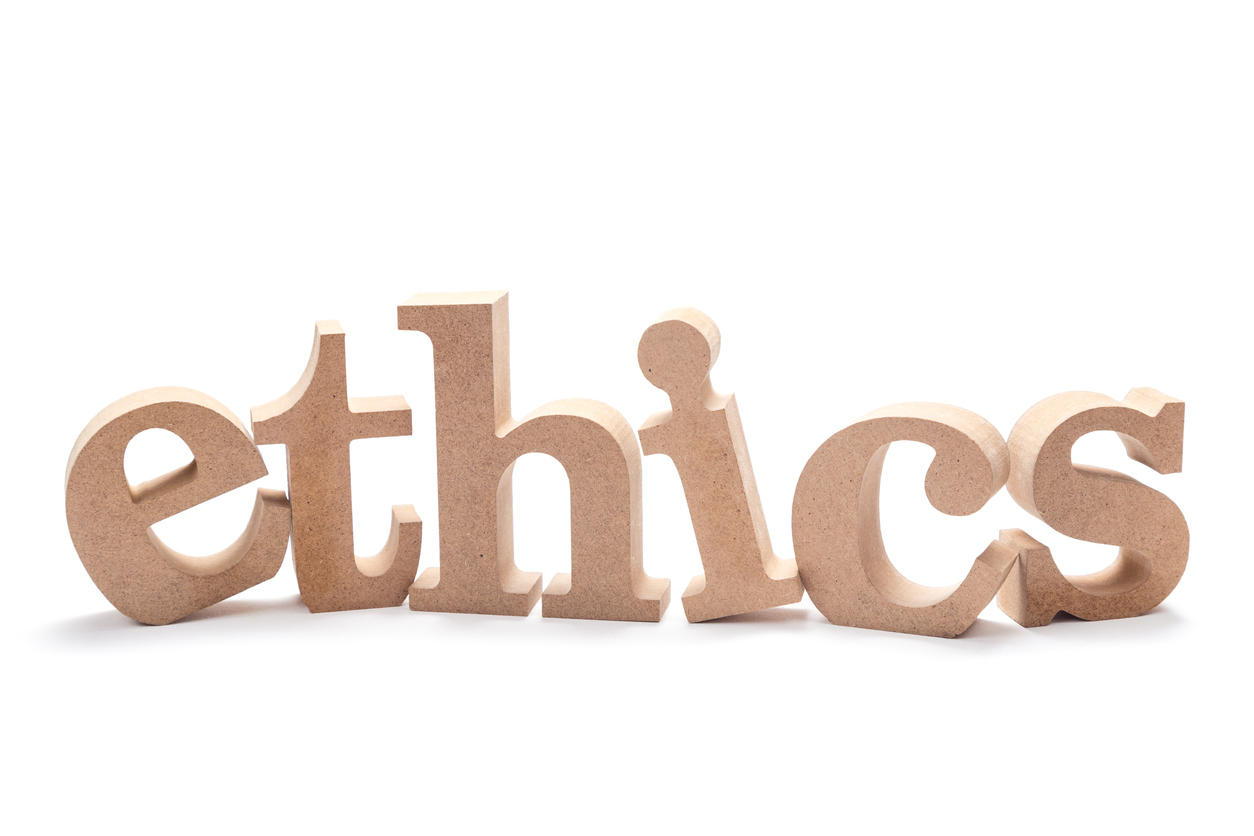Here’s a Wharton School professor’s research-based approach to spot potential problems and set up strategies to deal with them.

Image: Getty Images/iStockphoto
Your boss asks you to adjust some figures on a client’s account. You catch your new hire fudging his timesheet. You notice a colleague behaving inappropriately around the new intern at the office. When faced with these kinds of situations in the workplace, it’s hard to know how to respond.
In his new book, “The Conscience Code: Lead with Your Values, Advance Your Career,” Richard Shell, professor at Wharton School, argues that standing up for your principles at work is not only possible but critical–both to maintain a sense of moral integrity, as well as to succeed in the workplace.
When Shell, a former lawyer, was asked to lead an initiative at Wharton’s MBA program to combine business law and ethics, he said he did not know what was in store for him. As he describes in “The Conscience Code,” Shell learned about the current day-to-day quandaries students faced in their careers.
Indeed, one student came to Wharton as a direct result of leaving her job when her manager asked her to “find a way” to hire a Chinese CEO client’s son, as an intern–which she had found could be illegal. Shell said he was so inspired by her story–and those of others who he dubs “ethics refugees,” that he wrote “The Conscience Code” to help provide a roadmap for how to stand up for what is right in the workplace.
It’s a problem that is widespread; a recent Harvard Business Review study claims that a full quarter of employees receive pressure to act unethically. Furthermore, just over 40% of U.S. workers observe unethical conduct at their job in a typical year, according to the Ethics Resource Center.
Shell, however, thinks that this figure doesn’t capture the full picture. “I have the data from the students I teach,” he said, showing that the majority of them can recall an instance of unethical behavior at work. Plus, the data is self-reported, and “when you’re employed somewhere and you’re worried about your employment, you’re not inclined to volunteer that you think there’s something dodgy going on.”
SEE: COVID-19 workplace policy (TechRepublic Premium)
The reality is that workplace conflict is likely to emerge. And learning how to prevent problems before they arise, and know how to deal with them once they’re here, are skills all workers should master.
Shell’s book outlines strategies for tackling problems–called “values-to-action”–his method includes acknowledging a value at risk, taking responsibility for the problem, analyzing the plan and designing it.
When you encounter a problem at work, you have choices, Shell says. One is to look away. The second is to walk away. Both of these, however, are passive choices, he says, which means you internalize the problem. The third option is to finesse the situation–a “creative option.” And the last is to know your rights, and actually take a real stand.
With COVID-19 resulting in many layoffs and fears over employment, it can be easy to see why employees might resist making waves at work and risking their employment. But Shell believes that standing up for what you see as wrong can actually end up helping your career. In large part, it can help individuals maintain a sense of integrity, he contends. It is almost always easier, however, to dismiss a concern and sweep it under the rug. The best way to take your (and others’) concerns seriously is to appeal to a common ethical code.
“When it comes to making a decision, the decision is often distorted by discounting what the pain really is,” Shell said, “and then going for security as an almost overwhelming priority, instead of asking “who am I, after I made a decision not to do anything?”
As he writes, “Your day-to-day tolerance for those who cut ethical corners sets the standard for the ‘normal’ way to get things done. Remaining silent while a boss lies to a client may be only a small step, but it’s a step down the wrong road. You are letting yourself be led by your fears instead of choosing to lead with your conscience.”
Managers can help employees work out their concerns by creating open forums for discussion. Employees need “a safe space for people to share issues they’re perceiving,” Shell said, “and the leadership should encourage the dialogue.” The majority of the time, he says, people actually do not know that they’re behaving badly.
The bottom line, Shell stresses, is that we do not just let these workplace issues slide. “The most important thing,” he stressed, “is not to bury it.”
Also see
Source of Article




